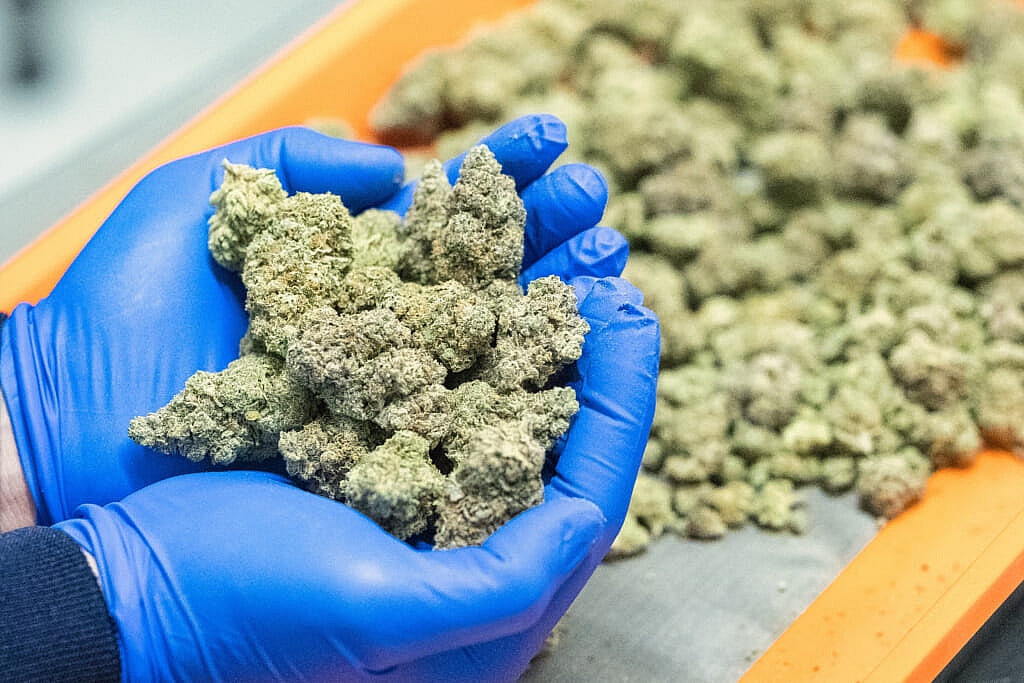Editor’s note: The following article is an op-ed, and the views expressed are the author’s own. Read more opinions on theGrio.
More than a decade into the thriving legal cannabis marketplace, it is tragically clear that the communities most harmed by cannabis prohibition are benefiting the least from its legalization. However, our nation is now on the threshold of historic change where we can right this wrong. Earlier this month, a bipartisan majority of members in the House of Representatives voted to pass the Marijuana Opportunity Reinvestment and Expungement Act, which will address decades of harm to Black and brown communities perpetrated by the federal prohibition on marijuana. It is now incumbent on senators to swiftly follow suit and pass legislation to remedy this relic of the failed war on drugs.
Most of us believe that everyone in America—regardless of their race or background—should be treated fairly. But since its inception, America has maintained a racist criminal-legal system. These disparities are particularly evident in the enforcement of drug prohibition laws. Despite similar usage of marijuana among all groups, Black people are nearly four times more likely to be arrested for marijuana than white people. Furthermore, people of color are targeted by disparate sentencing policies: Research shows that Black men receive drug sentences that are 13.1 percent longer than those imposed on white men.
Meanwhile, the United States appreciates the utility of medical and recreational marijuana use—a recognition found in politicians’ rhetoric, public opinion, and policy change. This is an encouraging shift. The benefits of cannabis use are so widely acknowledged that 38 states and Washington, D.C., have legalized access to cannabis, 18 of which adopted cannabis for adult recreational use. Pew Research Center found that a majority of Americans approve of the nationwide legalization of cannabis. Yet the more things change nationally, the more they stay the same for Black and brown communities.
As the legal market for marijuana booms, Black and brown people who were criminalized under the draconian laws of the past are barred from participating in the industry today—an industry projected to reach $43 billion in sales by 2025. A 2017 survey of the marijuana industry found that only 19 percent of business owners identify as nonwhite. As white cannabis entrepreneurs rake in profit, too many Black and brown people with criminal records from marijuana-related arrests are ensnared in the lifelong consequences of mass incarceration and ironically barred from entering the legal cannabis industry. Drug conviction records limit a person’s ability to work, find housing, access educational opportunities and provide for their families and communities. They can also rob people of their political power. Cannabis crime conviction often includes revoking people’s most essential right: the right to vote.

Crucially, the MORE Act will help to rectify these consequences by allowing sentencing review of federal marijuana cases and expunging federal cannabis convictions. It will also remove employment and education barriers for people with cannabis convictions and generate hundreds of thousands of new jobs by expanding the industry and taking steps to ensure it is diverse and inclusive of affected communities. Further, the 5 percent federal excise tax on marijuana sales will boost local communities by supporting impacted people through job training, reentry services, expungement expenses, public libraries, and community centers. In short, the MORE Act will provide the bold and transformative change that communities deserve.
As the past two years have shown us, the stakes for Black and brown people and communities are simply too high for cannabis decriminalization to fail in the Senate. The police murders of George Floyd, Breonna Taylor, and many others shined a light on violent and discriminatory law enforcement practices. The COVID-19 pandemic exposed the underbelly of American systems, laying bare the longstanding inequities and structural racism that plague our nation. And officials at all levels turned their backs as the virus took the lives of people in jails and prisons at a higher rate than in the general population.
People across the United States are demanding a new vision for justice—one that truly makes communities safe. Decriminalizing marijuana is a long overdue and popular step toward remedying nearly five decades of harm inflicted through the War on Drugs. Now that the House has successfully passed the MORE Act, senators have a choice: They can vote to replicate and reinforce patterns of racial oppression, or they can vote to free us from them. We urge them to choose our freedom.

Kanya Bennett is the managing director of government affairs at the Leadership Conference on Civil and Human Rights.
TheGrio is FREE on your TV via Apple TV, Amazon Fire, Roku, and Android TV. Please download theGrio mobile apps today!


